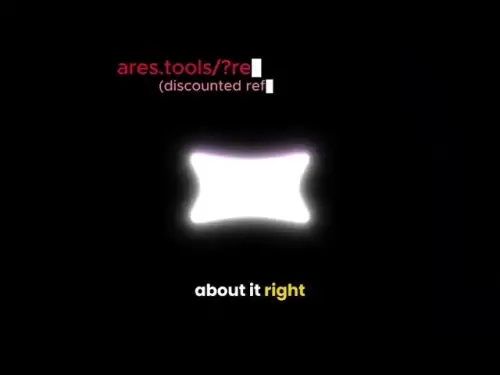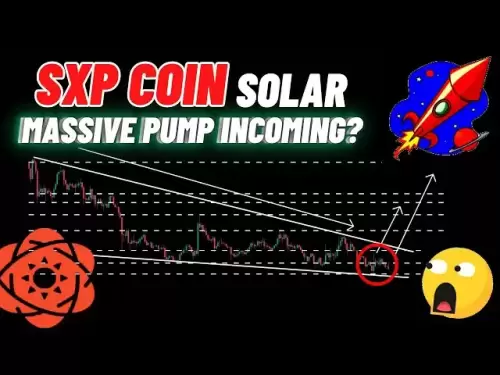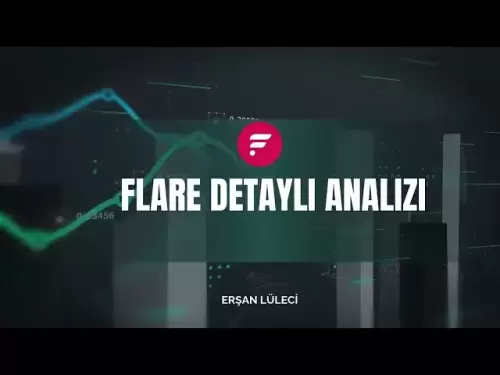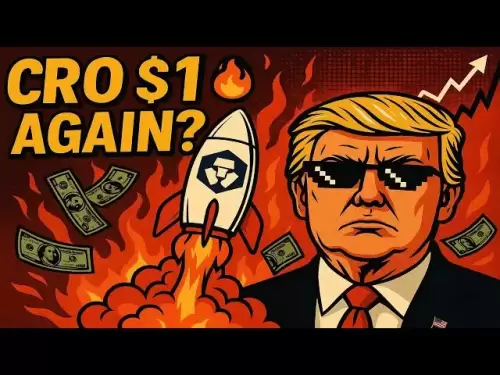-
 Bitcoin
Bitcoin $115100
-2.99% -
 Ethereum
Ethereum $3642
-1.38% -
 XRP
XRP $3.027
-5.51% -
 Tether USDt
Tether USDt $1.000
-0.05% -
 BNB
BNB $763.4
-1.32% -
 Solana
Solana $177.2
-5.42% -
 USDC
USDC $0.9999
-0.02% -
 Dogecoin
Dogecoin $0.2247
-6.47% -
 TRON
TRON $0.3135
0.23% -
 Cardano
Cardano $0.7824
-4.46% -
 Hyperliquid
Hyperliquid $42.53
-0.97% -
 Stellar
Stellar $0.4096
-6.09% -
 Sui
Sui $3.662
-2.61% -
 Chainlink
Chainlink $17.63
-3.57% -
 Bitcoin Cash
Bitcoin Cash $536.3
2.94% -
 Hedera
Hedera $0.2450
0.34% -
 Avalanche
Avalanche $23.23
-3.15% -
 Litecoin
Litecoin $112.2
-1.23% -
 UNUS SED LEO
UNUS SED LEO $8.976
-0.30% -
 Shiba Inu
Shiba Inu $0.00001341
-2.72% -
 Toncoin
Toncoin $3.101
-2.44% -
 Ethena USDe
Ethena USDe $1.001
-0.05% -
 Uniswap
Uniswap $10.08
-1.97% -
 Polkadot
Polkadot $3.938
-2.77% -
 Monero
Monero $323.9
0.87% -
 Dai
Dai $0.9999
-0.02% -
 Bitget Token
Bitget Token $4.481
-1.69% -
 Pepe
Pepe $0.00001199
-5.94% -
 Aave
Aave $288.2
-0.68% -
 Cronos
Cronos $0.1279
0.36%
How to buy TRX through the OTC market?
To buy TRX through OTC markets, find a reliable broker, negotiate terms, execute the transaction, and verify receipt in your wallet for a secure purchase.
Apr 19, 2025 at 12:07 am
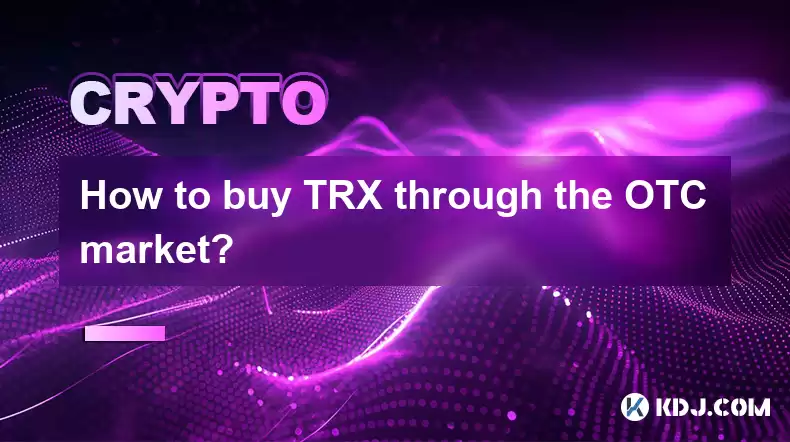
Introduction to TRX and OTC Markets
TRX, also known as Tron, is a blockchain-based decentralized platform that aims to revolutionize the entertainment industry by allowing content creators to share their work directly with consumers. Buying TRX through the OTC (Over-The-Counter) market can be an efficient way to acquire the cryptocurrency without the need to go through traditional exchanges. The OTC market allows for direct transactions between buyers and sellers, often offering better liquidity and lower fees for large transactions.
Understanding the OTC Market
The OTC market operates outside of traditional exchanges, providing a platform for trading cryptocurrencies directly between parties. This market is particularly useful for large-volume traders who want to avoid the volatility and slippage associated with exchange trading. OTC desks are typically operated by specialized firms that facilitate these transactions, ensuring both parties agree on the price and terms before executing the trade.
Finding a Reliable OTC Broker
To buy TRX through the OTC market, the first step is to find a reliable OTC broker. Here are some key factors to consider when choosing an OTC broker:
- Reputation: Look for brokers with a strong reputation in the cryptocurrency community. Check reviews and testimonials from other traders.
- Liquidity: Ensure the broker has sufficient liquidity to handle your desired transaction size.
- Fees: Compare the fees charged by different brokers to find the most cost-effective option.
- Security: Verify that the broker has robust security measures in place to protect your assets and personal information.
Initiating Contact with an OTC Broker
Once you have selected a suitable OTC broker, the next step is to initiate contact. Most brokers have a contact form or email address listed on their website. Here’s how you can proceed:
- Visit the broker's website and navigate to the contact section.
- Fill out the contact form with your name, email address, and a brief message expressing your interest in buying TRX.
- Wait for a response from the broker, which usually comes within 24-48 hours.
Negotiating the Terms of the Transaction
After establishing contact with the broker, you will need to negotiate the terms of the transaction. This includes discussing the amount of TRX you wish to buy, the price per unit, and the payment method. Here’s a detailed breakdown of the negotiation process:
- Specify the amount: Clearly state how much TRX you want to purchase.
- Discuss the price: The broker will typically provide a quote based on current market rates. You can negotiate this price if you believe it is too high.
- Choose a payment method: Common payment methods include bank transfers, cryptocurrencies, or stablecoins. Agree on a method that suits both parties.
- Finalize the terms: Once both parties agree on the terms, the broker will prepare a contract outlining the details of the transaction.
Executing the Transaction
With the terms agreed upon, the next step is to execute the transaction. Here’s a step-by-step guide on how to proceed:
- Review the contract: Carefully read the contract provided by the broker to ensure all terms are as agreed.
- Sign the contract: If everything is in order, sign the contract and send it back to the broker.
- Make the payment: Follow the broker’s instructions to make the payment using the agreed-upon method. For example, if you are using a bank transfer, you will need to provide the necessary banking details and initiate the transfer.
- Wait for confirmation: Once the broker receives your payment, they will confirm receipt and proceed with the TRX transfer.
- Receive the TRX: The broker will send the agreed-upon amount of TRX to the cryptocurrency address you provided. This transfer usually takes a few minutes to complete.
Verifying the Transaction
After receiving the TRX, it’s important to verify the transaction to ensure everything is correct. Here’s how you can do this:
- Check your wallet: Open your cryptocurrency wallet and verify that the TRX has been credited to your account.
- Confirm the amount: Ensure that the amount of TRX received matches the amount specified in the contract.
- Review the transaction details: Check the transaction ID and other details on the blockchain explorer to confirm the legitimacy of the transfer.
Frequently Asked Questions
Q: Can I buy TRX through OTC markets with fiat currency?
A: Yes, many OTC brokers accept fiat currency as a payment method. You can use bank transfers or other traditional payment methods to buy TRX directly.
Q: What are the advantages of using OTC markets to buy TRX?
A: OTC markets offer several advantages, including better liquidity for large transactions, lower fees, and the ability to negotiate prices directly with the broker. This can result in a more tailored and efficient trading experience.
Q: How do I know if an OTC broker is trustworthy?
A: To determine if an OTC broker is trustworthy, research their reputation within the cryptocurrency community, check for any regulatory compliance, and review their security measures. Additionally, reading testimonials and reviews from other users can provide valuable insights.
Q: Are there any risks associated with buying TRX through OTC markets?
A: Yes, there are risks involved, such as the potential for fraud or scams. It’s crucial to thoroughly vet the broker and ensure they have a strong track record and robust security measures in place to mitigate these risks.
Disclaimer:info@kdj.com
The information provided is not trading advice. kdj.com does not assume any responsibility for any investments made based on the information provided in this article. Cryptocurrencies are highly volatile and it is highly recommended that you invest with caution after thorough research!
If you believe that the content used on this website infringes your copyright, please contact us immediately (info@kdj.com) and we will delete it promptly.
- VIRTUAL Weekly Drop: Recovery Analysis and Privacy Push
- 2025-07-26 08:50:11
- Bitcoin, Cynthia Lummis, and Freedom Money: A New Yorker's Take
- 2025-07-26 08:30:11
- Crypto Gainers, Top 10, Week 30: Altcoins Buck the Trend
- 2025-07-26 08:55:12
- Solana, Altcoins, and Coinbase: What's the Buzz?
- 2025-07-26 06:30:12
- XRP in 2025: Bull Run or Bust?
- 2025-07-26 07:30:12
- Ruvi AI Presale Heats Up: Early Investors Eyeing Big Gains
- 2025-07-26 09:10:13
Related knowledge

What is Chainlink (LINK)?
Jul 22,2025 at 02:14am
Understanding Chainlink (LINK): The Decentralized Oracle NetworkChainlink is a decentralized oracle network designed to bridge the gap between blockch...

What is Avalanche (AVAX)?
Jul 22,2025 at 08:35am
What is Avalanche (AVAX)?Avalanche (AVAX) is a decentralized, open-source blockchain platform designed to support high-performance decentralized appli...

What is Polkadot (DOT)?
Jul 19,2025 at 06:35pm
Understanding the Basics of Polkadot (DOT)Polkadot (DOT) is a multi-chain network protocol designed to enable different blockchains to transfer messag...

What is Litecoin (LTC)?
Jul 23,2025 at 11:35am
Overview of Litecoin (LTC)Litecoin (LTC) is a peer-to-peer cryptocurrency that was created in 2011 by Charlie Lee, a former Google engineer. It is oft...

What is Monero (XMR)?
Jul 21,2025 at 10:07am
What is Monero (XMR)?Monero (XMR) is a decentralized cryptocurrency designed to provide enhanced privacy and anonymity for its users. Unlike Bitcoin a...

How to add indicators to Ethereum chart on TradingView?
Jul 19,2025 at 07:15am
What Is an Ethereum Chart on TradingView?The Ethereum chart on TradingView is a visual representation of the price movement of Ethereum (ETH) over a s...

What is Chainlink (LINK)?
Jul 22,2025 at 02:14am
Understanding Chainlink (LINK): The Decentralized Oracle NetworkChainlink is a decentralized oracle network designed to bridge the gap between blockch...

What is Avalanche (AVAX)?
Jul 22,2025 at 08:35am
What is Avalanche (AVAX)?Avalanche (AVAX) is a decentralized, open-source blockchain platform designed to support high-performance decentralized appli...

What is Polkadot (DOT)?
Jul 19,2025 at 06:35pm
Understanding the Basics of Polkadot (DOT)Polkadot (DOT) is a multi-chain network protocol designed to enable different blockchains to transfer messag...

What is Litecoin (LTC)?
Jul 23,2025 at 11:35am
Overview of Litecoin (LTC)Litecoin (LTC) is a peer-to-peer cryptocurrency that was created in 2011 by Charlie Lee, a former Google engineer. It is oft...

What is Monero (XMR)?
Jul 21,2025 at 10:07am
What is Monero (XMR)?Monero (XMR) is a decentralized cryptocurrency designed to provide enhanced privacy and anonymity for its users. Unlike Bitcoin a...

How to add indicators to Ethereum chart on TradingView?
Jul 19,2025 at 07:15am
What Is an Ethereum Chart on TradingView?The Ethereum chart on TradingView is a visual representation of the price movement of Ethereum (ETH) over a s...
See all articles





















